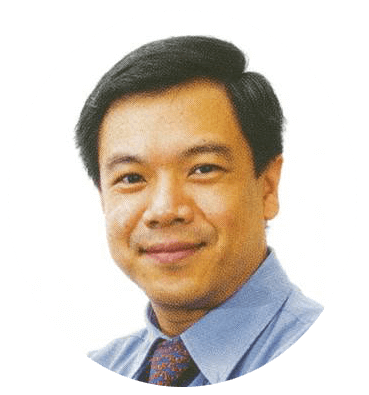Singapore is well on its journey to become a Smart Nation seeking to leverage data for planning a modern and liveable urban environment. Quality decision making can only be made if there is an understanding of how data is derived from sensors; in particular, what are the device physics governing the operation of these sensors. In this course, participants will learn the working principles of several important smart devices that are already embedded in everyday life, from traffic control sensors to devices built into modern cell phones, and also emerging ones based on quantum technologies. Participants will also learn how to use these stories, as well as sensors in smart phones, to promote curiosity-driven and authentic learning of selected physics topics, engaging students to appreciate the emerging Internet-of-Things revolution.
- You are a science teacher seeking to bring physics lessons to live by discussing the real world application of physics.
- Attendees should have a Bachelor’s Degree in physics or related subject.
- To understand the foundations of device physics and how these physics concepts determine sensor operation in our daily lives
- Draw connections between smart sensors and fundamental physics concepts
- Gain experience in designing interactive lessons based on smart sensors
| Duration | 33 hours, comprising of two 3-hour classroom sessions, a 3-hour workshop and 24 hours of project work |
| Course Dates | 5 May, 12 May and 26 May 2023 |
| Time | 1400-1700 |
| Venue | S11-02-07 and S12-04-02 |
| Format | Relaxed but engaging workshop |
| Full Programme Fee | SSG Grant Amount | Nett Programme Fee | GST On Nett Programme Fee | Total Nett Programme Fee | Less Additional Funding | Total Nett Fee Payable | |
| 01-Singaporean ETS | 1350.00 | 945.00 | 405.00 | 32.40 | 437.40 | 270.00 | 167.40 |
| 03-Singaporean age>=40 (MCES) | 1350.00 | 945.00 | 405.00 | 32.40 | 437.40 | 270.00 | 167.40 |
| 04-Singaporean age <40 | 1350.00 | 945.00 | 405.00 | 32.40 | 437.40 | 437.40 | |
| 05-Singapore PR | 1350.00 | 945.00 | 405.00 | 32.40 | 437.40 | 437.40 | |
| 06-International/ Others | 1350.00 | 1350.00 | 108.00 | 1458.00 | 1458.0 |
- Registration is open now till 2 May 2023
- Click here to register
Course Outline
Introduction to Smart Devices Physics
In this session, the participants will be given an introduction to various smart devices and the discussion will revolve around the physics of the devices, and how this defines the operation of the devices. The link between modern sensors and the O-level/A-Level Physics syllabus will be highlighted. Some possible topics to be covered are provided in the table below.| Applications | Physics Used |
|
|
|
|
|
|
|
|
Smart Devices Physics Activities
During this session, the participants will be given the opportunity to perform a series of interesting experiments working with sensors found in modern cellphones. Cellphones with the (free to use) PhyPhox app will be available for the class. The participants are encouraged to install the App in their cellphone. The participants will utilize some of these sensors to carry out some sample experiments to gain an insight of the capability of modern sensors. The experiments will make use of items that are easy to prepare and we shall also take advantage of PhyPhox App to capture the relevant data. In addition, we shall also develop ready-to-use worksheet that the participants can implement (with or without modification) easily in their classes back in their school.
We shall provide ready-to-use worksheets that the participants can implement easily (with or without modification) in their classes back in their school.
Workshop on Smart Sensor Physics
This workshop will be based on a series of discussions with an expert panel composed of NUS Faculty Members who are experienced in the field of Science Communication.
Participants will be required to prepare an educational activity based on smart devices physics to enliven their teaching. For this activity, depending on the number of participants, participants are expected to work alone or in a team (to be confirmed in the beginning of the program). Each participant/team will be given 30 minutes to present this activity to the panel, and to the class. The recommendation is that the team will spend about 15 minutes presenting each topic, and then the other 15 minutes is intended to be an engagement with the panel and the rest of the class.
Course Lecturer Profile
Professor Sow Chorng Haur received his Ph.D. from the University of Chicago. He is the former Head of Department of Physics and Vice Dean (Outreach & Admissions) at the Faculty of Science. He has authored and co-authored many papers in the field of nanoscience and nanomaterials. He has a keen interest in developing various teaching methods to enhance students’ learning experiences. Prof Sow received many teaching awards, including the NUS Outstanding Educator Award (2008). He has travelled extensively to share his passion in teaching physics, especially with innovative science demonstrations.


